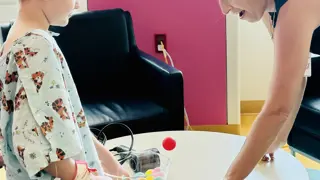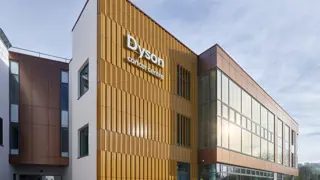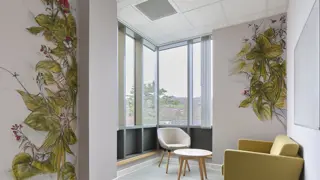
Donations and Fundraising
OVER $2.5 M DONATED TO MEDICAL RESEARCH
Since 2002, the global James Dyson Foundation has donated over $2.5m in Dyson products and grants to medical research organizations and fundraising initiatives to help local charities raise critical funds. We have also provided matchfunding to Dyson employees for their fundraising initiatives.

Fundraising
OVER $500,000 DONATED TO PEDIATRIC MEDICAL RESEARCH
Each year, Dyson people nominate a charity partner of the year. Throughout the year, employees organize office events to raise money for our nominated charity. The James Dyson Foundation match funds the money raised. As a result, over $500,000 has been raised in North America from Dyson fundraisers benefiting local pediatric hospitals.

ROYAL UNITED HOSPITAL, BATH (UK)
THE DYSON CANCER CENTRE
The James Dyson Foundation donated £4 million to develop a pioneering new Cancer Centre at the Royal United Hospital in Bath. The donation has support state-of-the-art medical equipment and dedicated research facilities, as well as art and pastoral gardens. The Dyson Cancer Centre opened for patients in 2024.

PATIENT-LED DESIGN
Research shows that the healing environment created by a building can significantly improve patient experience, reduce stress and improve clinical outcomes. The Cancer Centre has been designed with this in mind: using natural light to give bright, spacious interiors, and removing sources of noise to create a more relaxing environment. It also provides space for relatives and carers to stay overnight, and inpatient rooms are at the top of the building, so patients have the best views over the surrounding countryside. There are spaces to sit and be quiet, or to have private conversations with clinicians, or other patients.


